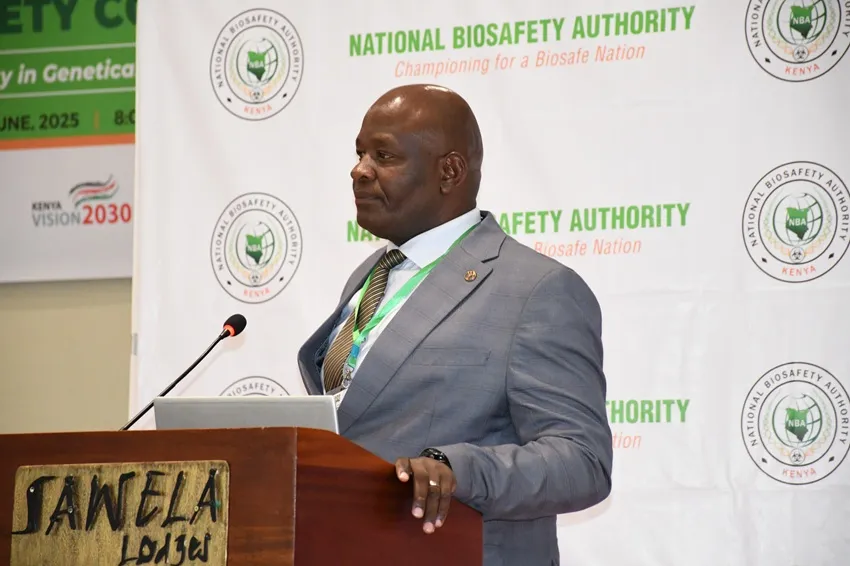The East African Community (EAC), in partnership with Kenya’s National Biosafety Authority (NBA), has launched a 10-year biotechnology strategy aimed at harmonizing policies and regulations across the region to boost trade, biodiversity, and innovation.
The strategy, set to run from 2026 to 2036, seeks to overcome fragmented national frameworks that slow the adoption of biotechnology and complicate cross-border trade in genetically modified organisms (GMOs) and related products. It was validated during a three-day forum in Nairobi attended by delegates from Kenya, Uganda, Tanzania, Burundi, Rwanda, the USA, and other partners.
East African Science and Technology Commission (EASTECO) Executive Secretary Dr. Sylvance Okoth urged member states to actively engage in refining the strategy and support countries lagging behind in biosafety readiness. “Let us help Partner States lagging behind,” Dr. Okoth said, emphasizing the Commission’s mandate to promote science and technology for regional integration and socio-economic growth.
NBA Acting Director for Biosafety Awareness, Assessment, and Collaborations, Josphat Muchiri, stressed Kenya’s leadership role in championing the initiative. “This 10-year strategy will boost crucial regional adoption of safety and implementation standards. As a country, we have been at the forefront of championing for this strategy,” he said.
Kenya’s biosafety framework is anchored in the Biosafety Act Cap 320, which mandates the NBA to oversee all GMOs in the country — whether approved, illegal, or unintended. The authority has established comprehensive regulations covering contained use, environmental release, import/export, and labeling of GMOs. It also maintains the Biosafety Clearing House (BCH) for the exchange of scientific, technical, and legal information.
The country has developed detailed guidelines on risk assessment, facility certification, genome editing, and GMO testing, supported by international laboratory and biorisk standards such as ISO 20387:2018 and ISO 35001:2019 through the Kenya National Accreditation Service (KENAS).
Kenya’s advancements in biotechnology include approved trials for GM bananas, cassava, yam, and sorghum at the Kenya Agricultural and Livestock Research Organization (KALRO), commercial approval for Bt cotton, and limited trials for Bt maize and virus-resistant cassava. Seven genome editing projects are also underway to enhance crop resilience and productivity.
The harmonized EAC strategy is expected to strengthen regional cooperation, enhance food security, and position East Africa as a competitive player in global biotechnology trade.

